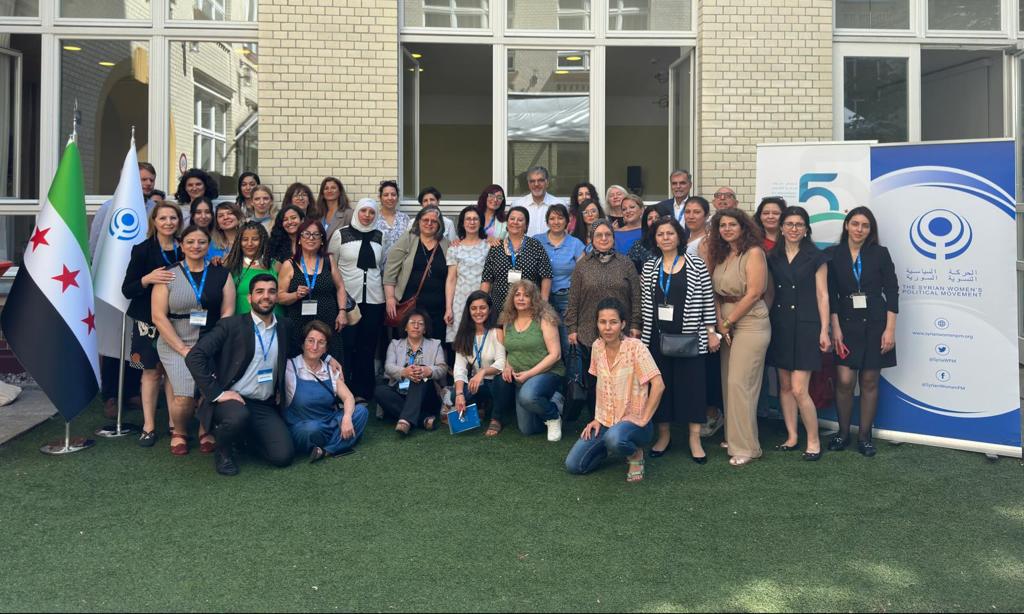The Fifth General Assembly Conference of the Syrian Women’s Political Movement, held under the slogan “Together We Upraise… Together We Will Build”
- updated: June 26, 2023
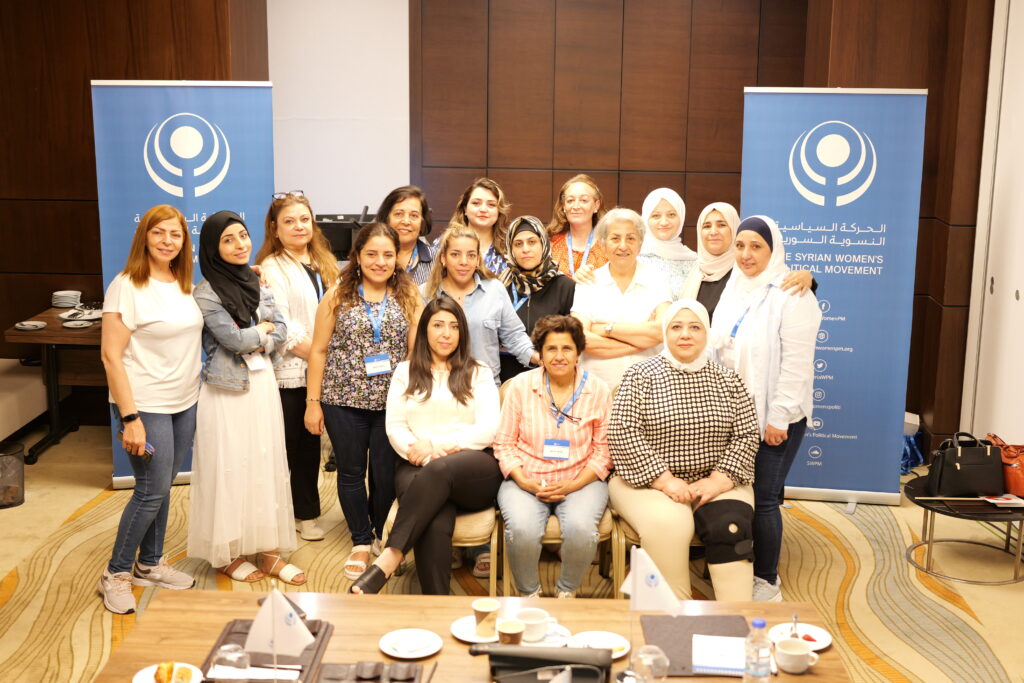
The Syrian Women’s Political Movement successfully concluded its fifth General Conference, which was held virtually in Syria with physical attendance in both Berlin and Istanbul. Under the theme “We Rise Together… and We Build Together,” the conference spanned from June 24th to June 26th, 2023, and boasted participation from approximately one hundred movement members hailing from 20 countries worldwide.
Reflecting on the conference slogan, Najat Marshad, a member of the Syrian women’s Political Movement, expressed, “Our conference slogan, ‘We Uprise Together… We Build Together,’ signifies our collective pursuit of freedom, democracy, and equality. We remain steadfast in our commitment to constructing a just and peaceful society, fighting against all forms of oppression.”
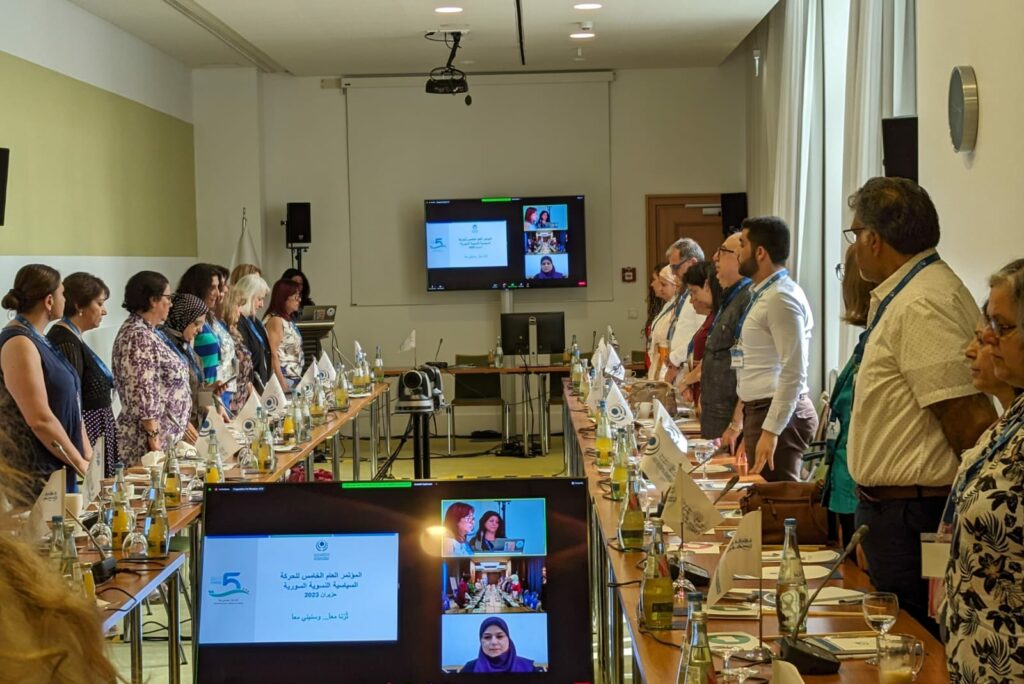
The first day of the conference commenced with a minute of silence to honor the victims of the February 6 earthquake and pay tribute to the late activists Dr. Basma Qadamani and Member Sahar Houeijeh. Following this, movement members delivered opening speeches. Hiyam Haj Ali, Rawda Matar, and Yafa Al-Hamwi spoke at the conference, from all three locations in Syria, Istanbul, and Berlin, respectively. Sanaa Houeijeh delivered a eulogy for Sahar Houeijeh, while Rawda Kan’an delivered a eulogy for Dr. Basma Qadamani. Both speeches lauded the activist journeys of Sahar and Basma as they tirelessly fought for democracy and justice in a free Syria, devoid of all forms of oppression.
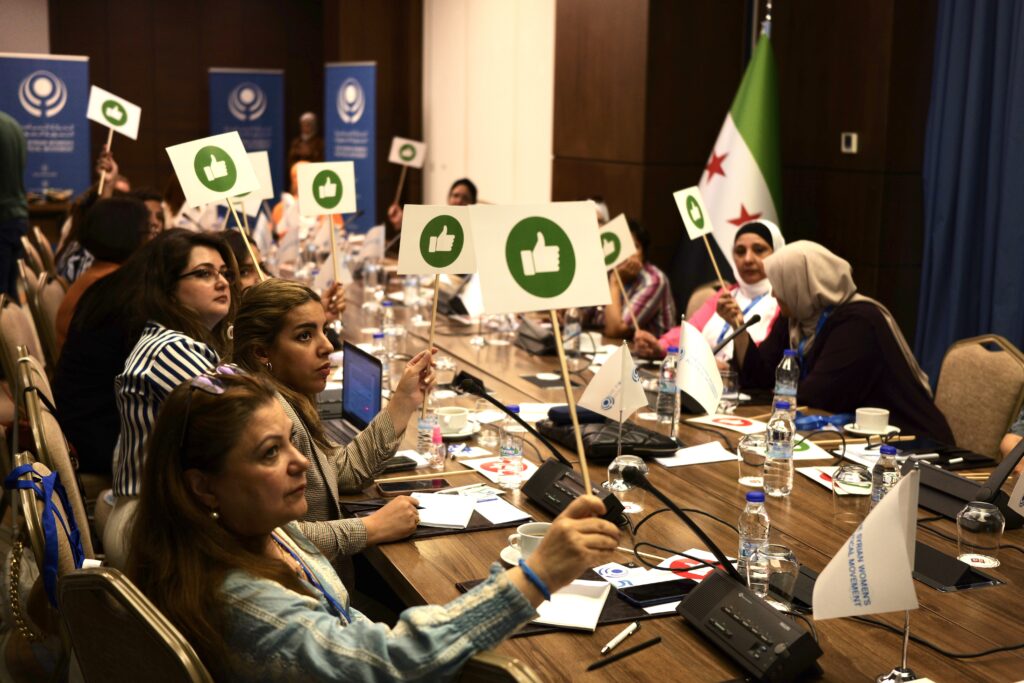
Subsequently, the General Assembly presented, discussed, voted on, and adopted the political report. This report covered various subjects, including the situation in regions under the control of the status quo forces, the economic and living conditions impacting Syrian women, the aftermath of the February 6 earthquake, the Syrian regime’s rapprochement, the refugee issue, and the Syrian political process. The report also outlined the movement’s stance on each of these matters.
Position papers were also put forth by the Syrian Women’s Political Movement, addressing topics such as sanctions, elections, decentralization, intersectionality, and the movement’s collective participation in the political process. These position papers were subjected to voting during the session.
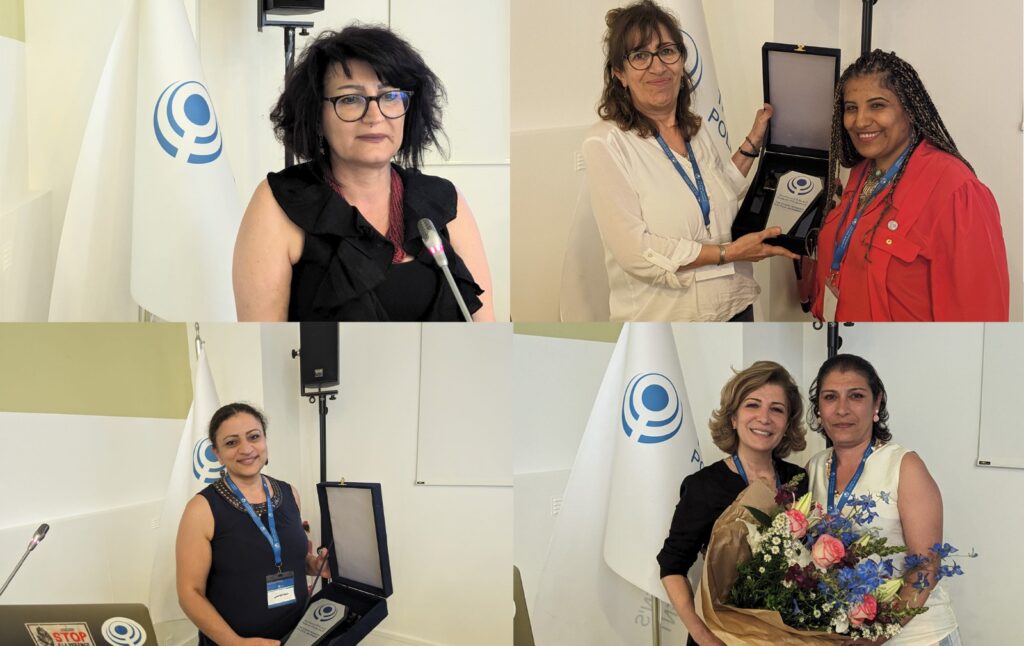
On the conference’s second day, the movement’s annual report for the year 2022-2023 was presented, outlining the work, accomplishments, and challenges faced by the movement’s committees. The report also shed light on the movement’s programs and projects. Additionally, the oversight committee’s report and the financial report for the year were delivered, followed by the presentation of the strategic plan for 2024.
During the final session on the second day, an electoral process took place to nominate the General Secretariat and the oversight committee. This process was considered a miniature democratic experience, reflecting the movement’s values and mechanisms. An electoral debate ensued among female candidates for positions in the new General Secretariat and the oversight committee. Subsequently, elections were held, and the results were announced, unveiling the new General Secretariat members: Rawda Kan’an, Rawda Matar, Farah Youssef, Kibriya Al-Saour, and Maysa Mahmoud. The new oversight committee consisted of Ala’a Mohammad, Rawya Al-Shammari, and Samiha Nader. The transition ceremony took place between the two Secretariats, and former General Secretariat members Khuzama Drouish and Saha Al-Qaseer were honored.
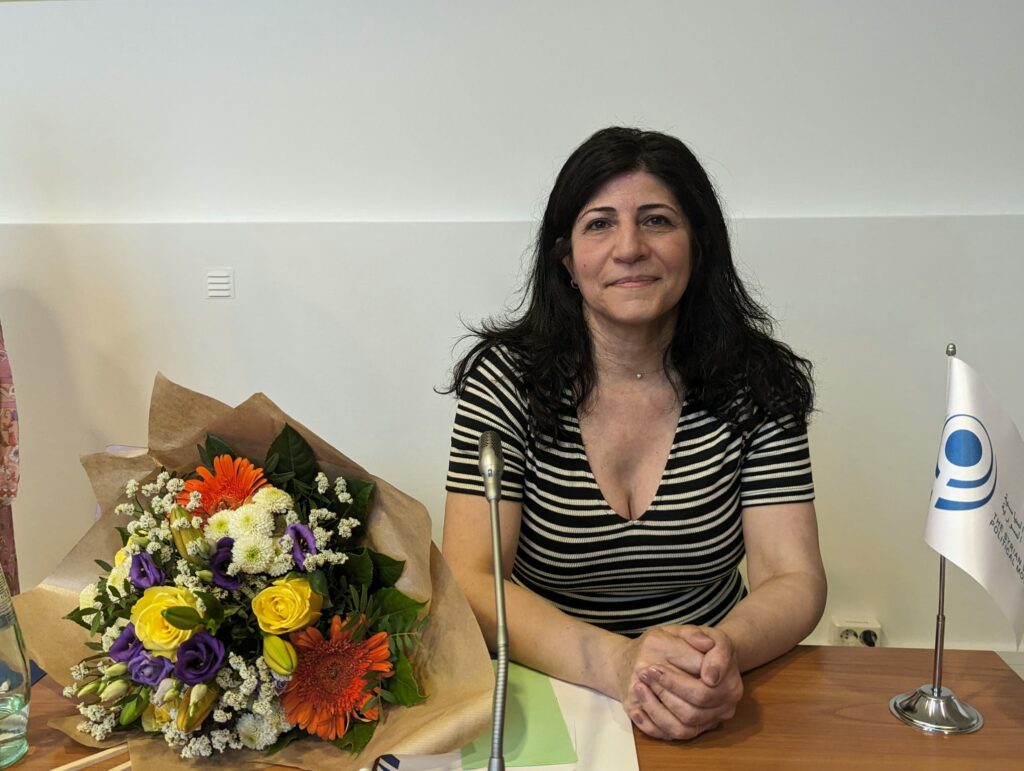
Commenting on the elections, Saha Al-Qaseer, a former member of the General Secretariat, remarked, “The elections for the new General Secretariat demonstrate the presence of the youth and young members. Serving on the General Secretariat is a responsibility that requires dedication over an extended period. It is crucial that differences do not lead to entrenched disputes but serve as a means to foster innovative ideas and develop the movement’s work.”
Regarding her candidacy for the Secretary-General position, Rawida Matar stated, “I decided to run for the Secretary-General position out of a desire for political engagement and a commitment to contribute to decision-making processes. I also aim to assume greater responsibilities within the movement and contribute to strengthening its local and international presence.”
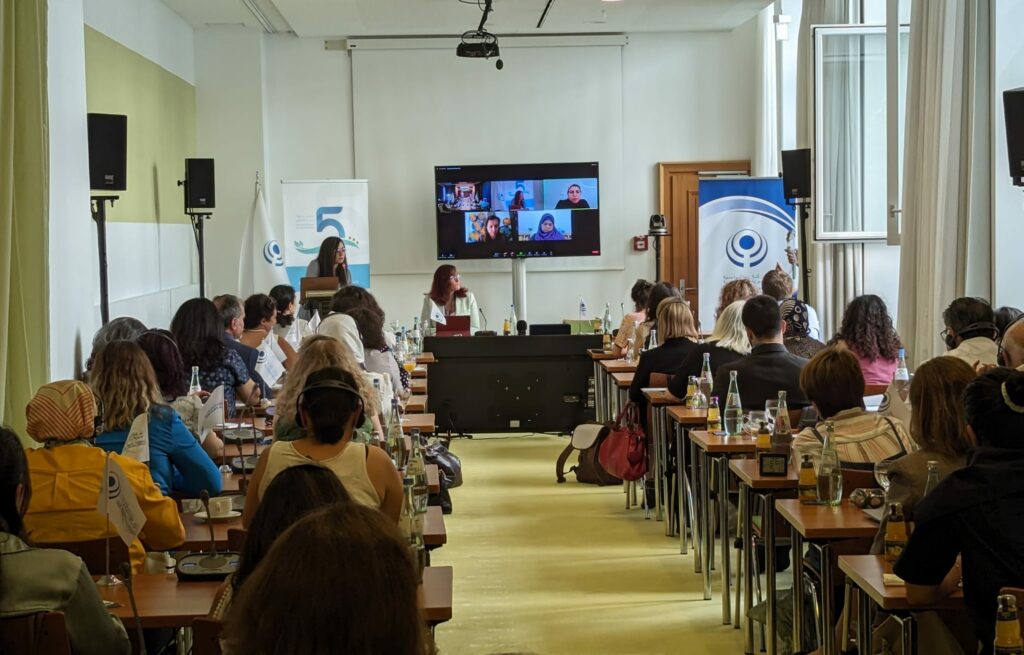
On the conference’s third day, the closing session commenced with a closing statement delivered by Khawla Barghouth, a member of the Syrian Women’s Political Movement. Special Envoy of the United Nations to Syria, Geir O. Pedersen, attended the session virtually, alongside numerous local and international partners, decision-makers, and stakeholders in Berlin and Istanbul.
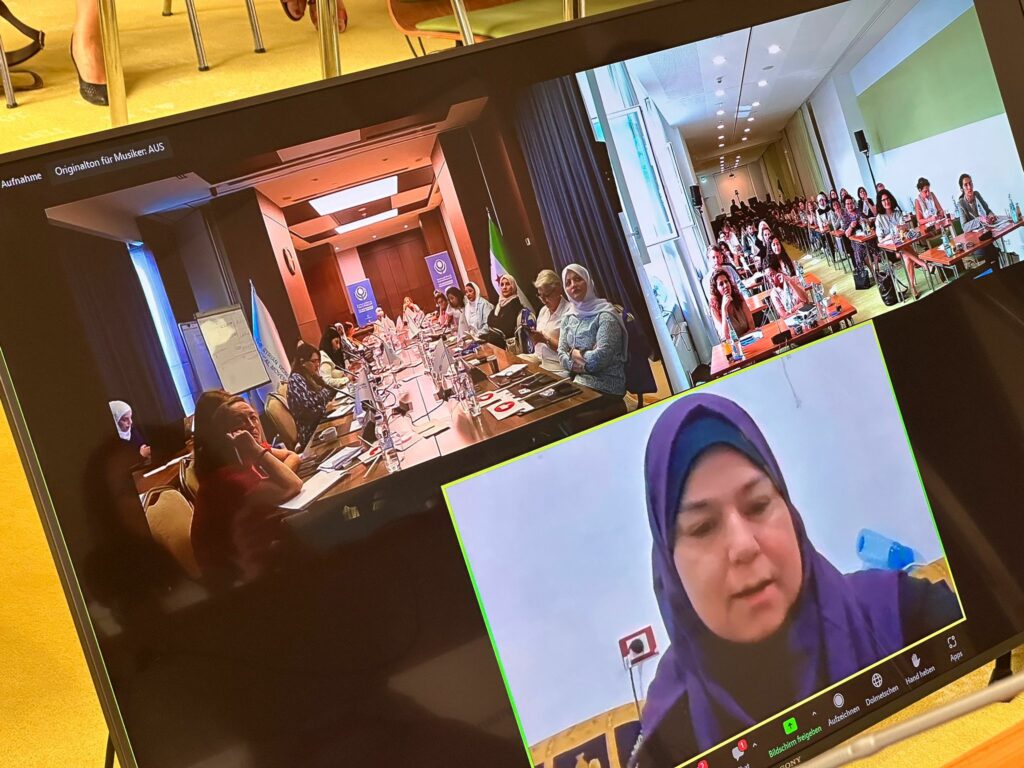
Maysa Mahmoud, a member of the Secretary-General’s office from Syria, delivered a speech during the session, emphasizing, “Since the onset of the conflict in Syria, Syrian women have tirelessly advocated for an inclusive political solution, with Syrian ownership and leadership, to address the ongoing 12-year-old crisis. Faced with protracted challenges, the Syrian Women’s Political Movement continues to strive for meaningful women’s participation in the political process, advocating for a minimum 30% women’s quota to achieve parity in any opposition body, committee, delegation, or entity involved in the political process and transitional phase. Vacant positions should remain unfilled unless occupied by women. At present, women’s participation in the political process is severely limited, particularly within the official Syrian opposition. Unfortunately, women in northern and northwestern Syria, including myself, encounter scarce opportunities for involvement. The feminine letter ‘taa’ is linguistically, socially, and politically marginalized in our society… I am not merely seeking 30% political representation for women; my demand is for 50%.”
Furthermore, various guests, members of the Syrian Women’s Political Movement, and both female and male participants delivered speeches and interventions on the movement’s development over the past five years, the presence of young female politicians within it, and diverse political issues. Notable quotes from session guests include:
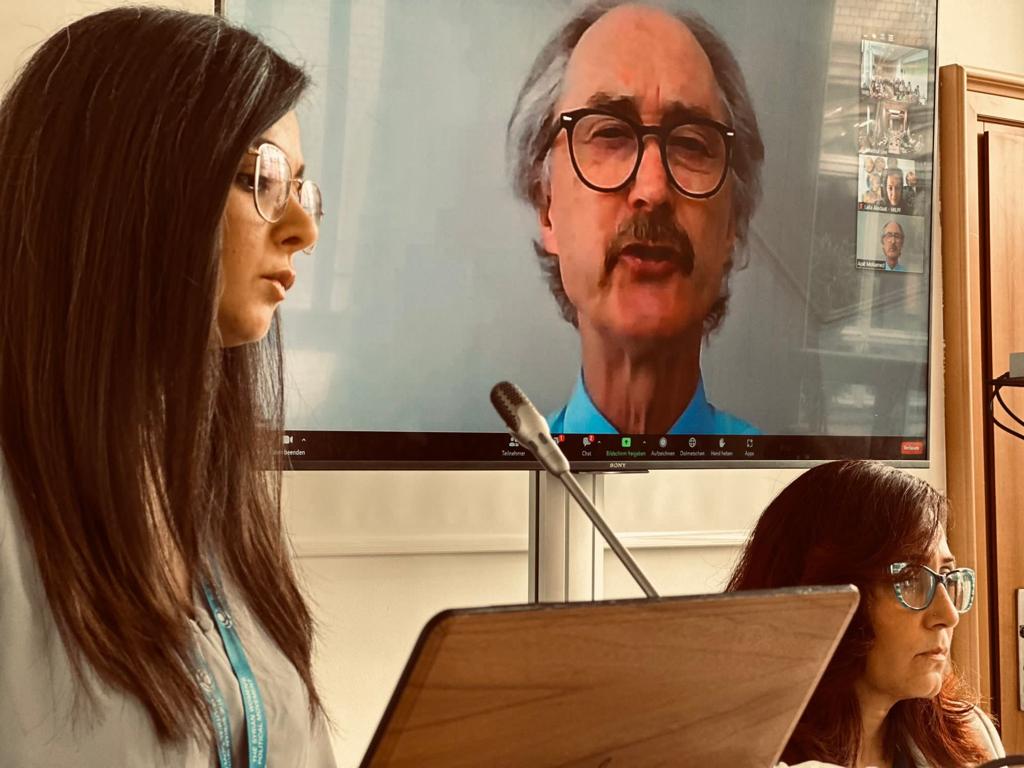
Geir O. Pedersen, Special Envoy of the United Nations to Syria, affirmed, “We are all obliged to ensure that the political process and the comprehensive settlement it seeks to achieve in line with Security Council resolution 2254 can create a reality in which Syrian women assume their rightful and hard-earned place in society.”
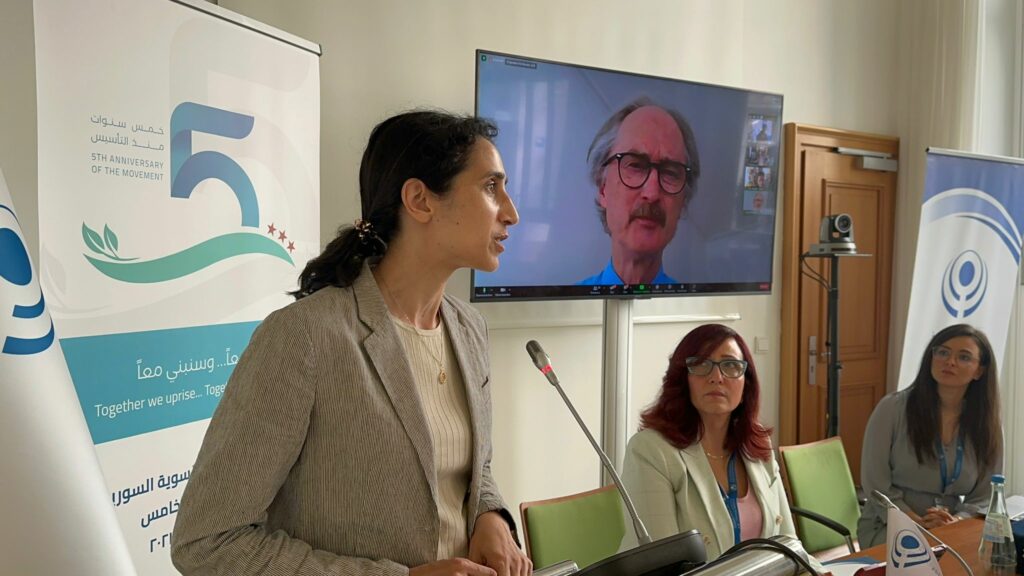
Farah Musani, Advisor to the Canadian Foreign Policy and guest at the Berlin Conference, commended the conference, stating, “It was an honour to be part of this fifth meeting of the SWPM, a movement that exemplifies the values of democracy, diversity, pluralism and respect for human rights. The resilience and fortitude of your members and all Syrian women in the face of incredibly difficult circumstances is remarkable.”
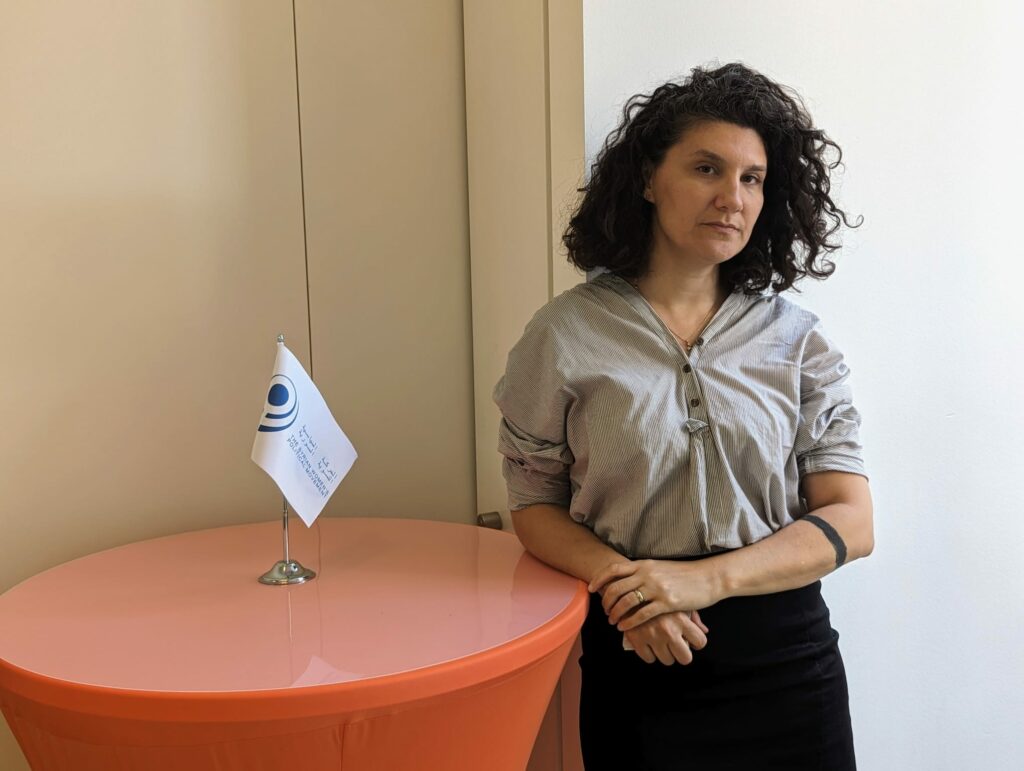
Salma Kehala, Director for the Middle East and North Africa at the International Women’s League for Peace and Freedom, expressed admiration for the movement, saying, “The Syrian Women’s Political Movement has been an inspiration and a source of learning for all of us. Even movements that are over a hundred years old are learning some creative and innovative ways to promote women’s leadership and gender justice. We look forward to continuing to support the movement as it grows and flourishes and to continue learning from the amazing work they are doing.”
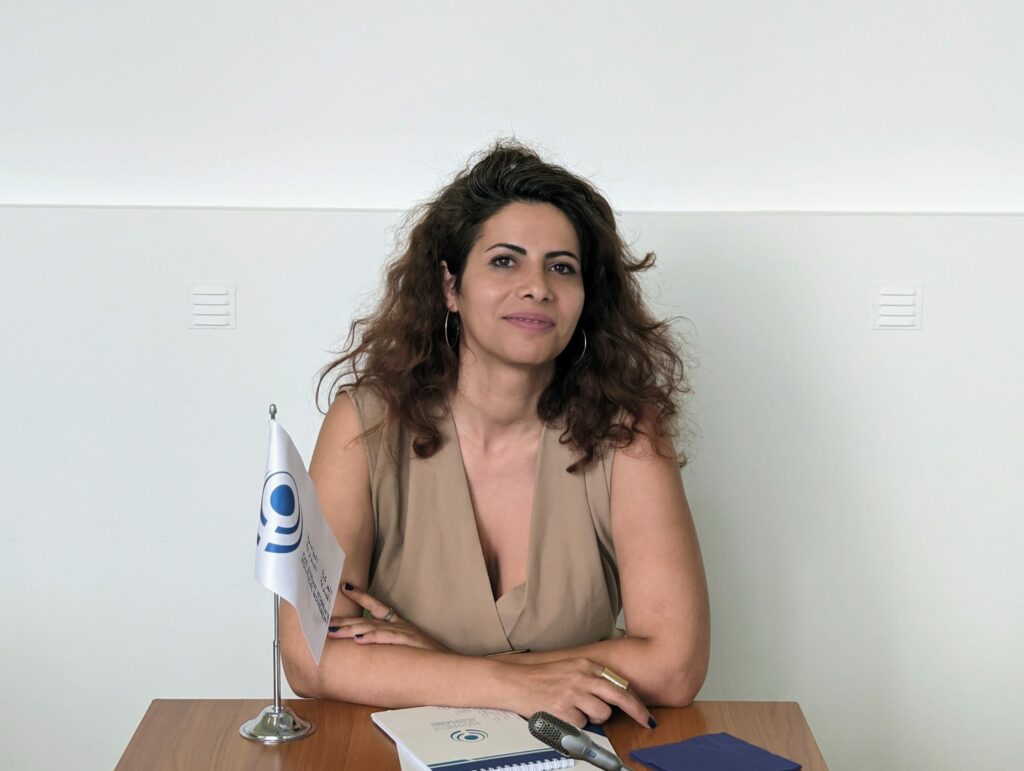
Randa Sabagh, Executive Director of the Syrian Female Journalists Network and guest at the Berlin Conference, congratulated the movement on its fifth year, emphasizing the significance of its presence amid attempts to de-politicize women’s entities and contexts. Sabagh also highlighted the importance of political presence, mentioning a study conducted by the Syrian Female Journalists Network on the media representation of female politicians, aimed at shedding light on the political efforts of Syrian feminists.
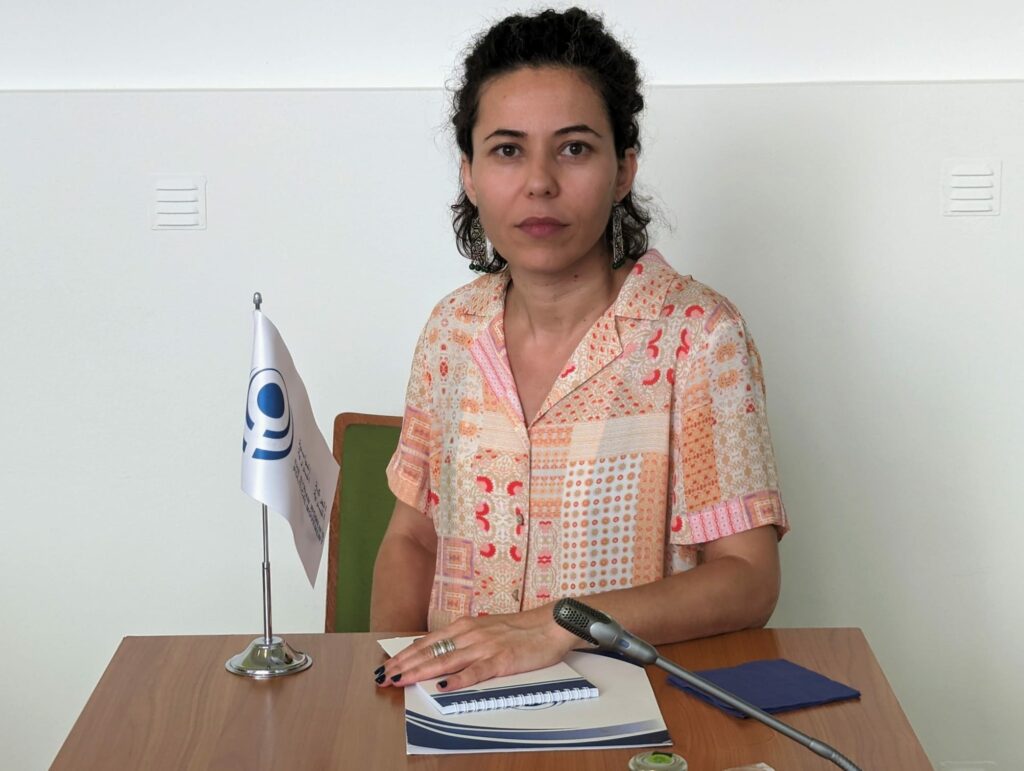
Ala Ramadan, Executive Director of the Badael Foundation and guest at the Berlin Conference, expressed pride in the Syrian Women’s Political Movement and its contributions to fundamental issues within the Syrian context. Ramadan reaffirmed Badael’s commitment as an ally and supporter throughout the movement’s journey, aiming to be a partner in the struggle.
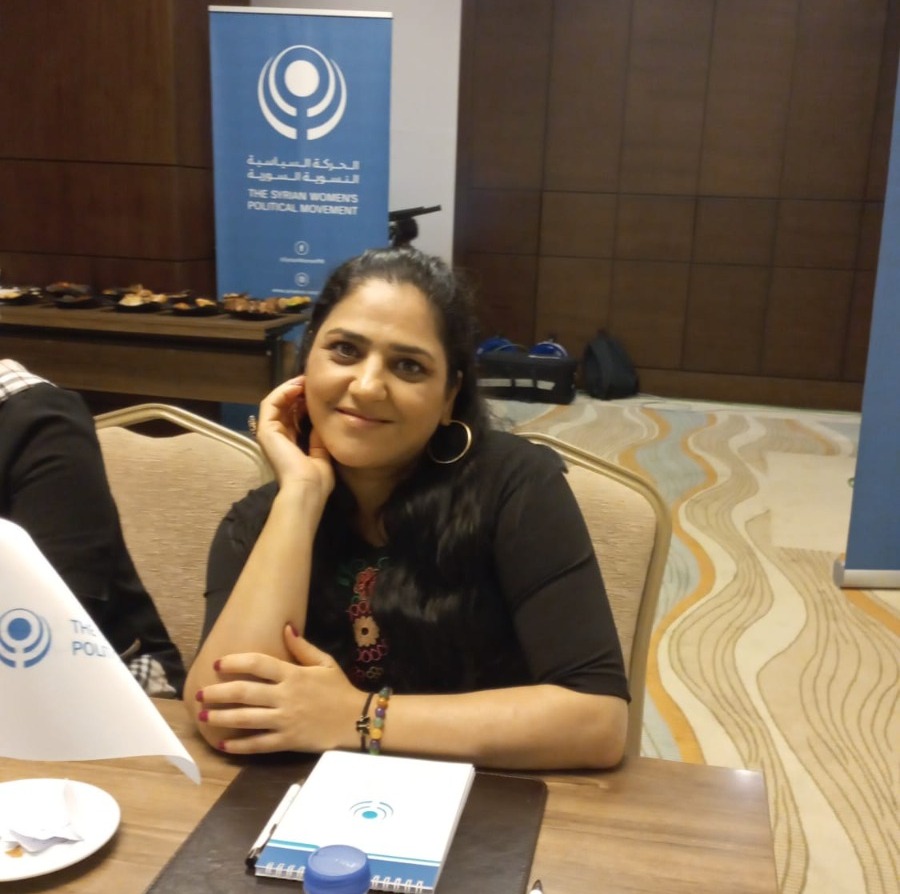
Huda Abu Nabut, a Syrian journalist with an interest in political and feminist affairs and guest at the Istanbul Conference, attended the conference to learn about the challenges faced by Syrian women working in the political sphere, particularly those inside Syria. She acknowledged that these challenges are further amplified by the obstructive powers of the status quo, preventing women from fully assuming their political roles and effectively achieving justice and equality.
Bassam Al-Qutla, President of Ahrar – Syrian Liberal Party, attended the session virtually and emphasized the importance of women’s freedom as an integral part of collective freedom. He applauded the progress witnessed in the work of the Syrian Women’s Political Movement and expressed gratitude for the invitation to participate in their fifth conference.
